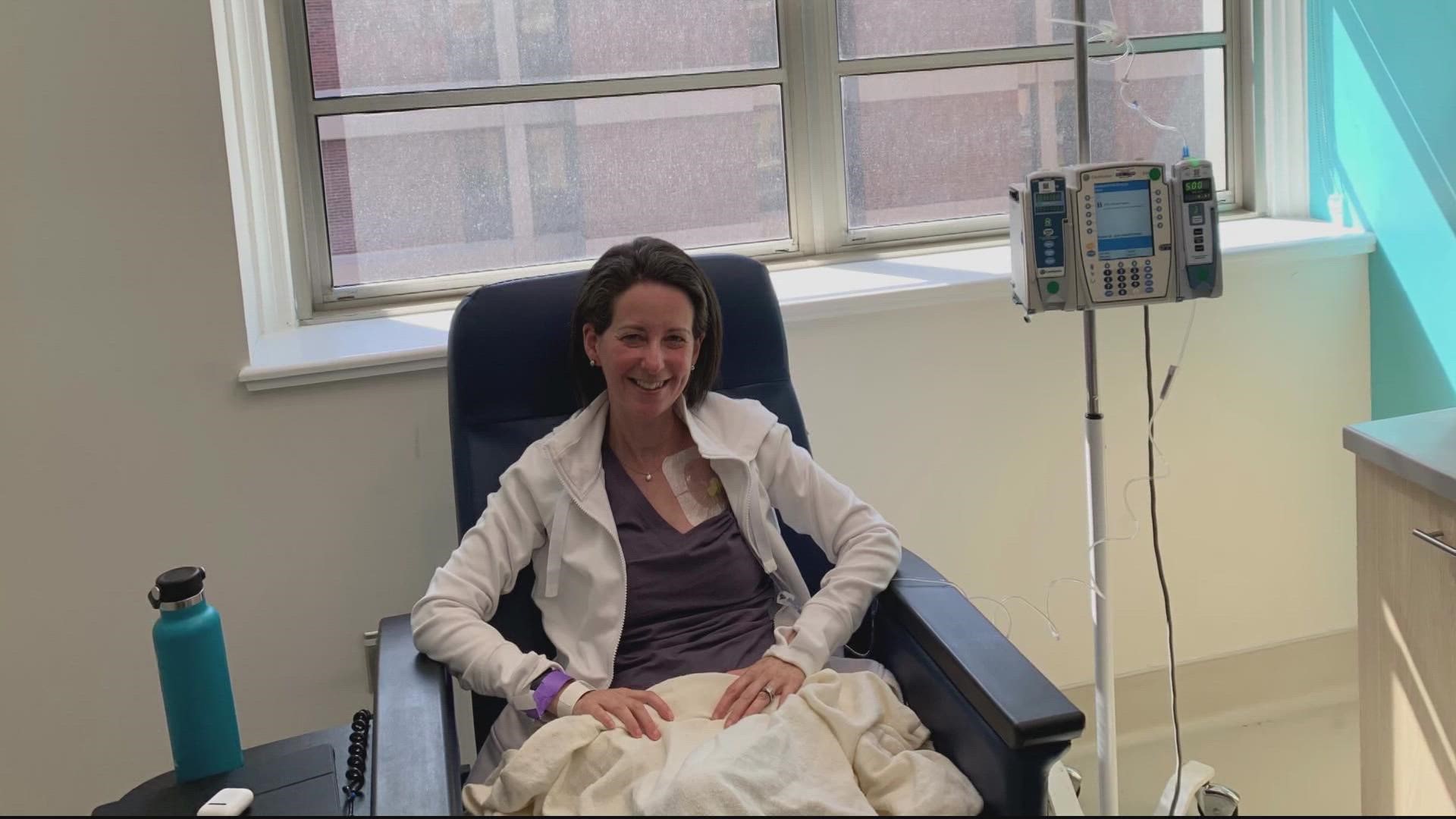BETHESDA, Md. — One rogue cell has changed Jennifer Feinberg's life.
In December 2017, the now-46-year-old was diagnosed with stage 0 breast cancer -- Ductal Carcinoma in Situ.
She had a double mastectomy, and thought that was it -- no chemotherapy, just surgery, and get on with her life.
“I didn't see myself as a cancer patient," Feinberg said. "Just had my surgery and life moved on. And for about two years, I didn't think about cancer.”
But, that surgery had revealed a 1mm micro-metastasis of HER2-positive cancer. She said her oncologist told her that was a very aggressive form of breast cancer, but she had pursued the most aggressive treatment available with the mastectomy.
Then, in 2020, she developed a cough and got a chest X-ray.
“And it just lit up on the screen," she said. "It looked like popcorn.”
Her cancer had metastasized to her lungs, liver, spleen, ribs, and more recently brain.
RELATED: 'It's very empowering' | New cancer clinic helps women assess risk of developing breast cancer
It happens to nearly 30% of women diagnosed with early stage breast cancer, according to the Cleveland Clinic.
“I was just really shocked," Feinberg said. "And you go into sort of crisis management mode.”
Right now, Feinberg is stable -- even hiking a glacier in Iceland this summer -- and on her second line of treatment.
“[It] is a drug that was approved by the FDA in 2020. So it's not lost on me how lucky I am to be receiving treatment at this time," she said. "Because, you know, a couple of years ago, there was no treatment for this.”
That's where she's focusing her energy -- into funding research that could save her life.
Specifically, she has set up grants through the Breast Cancer Research Foundation, which devotes 40% of its research on metastasis.
“[I] just thought, let's see what we can do," Feinberg said. "And we had no idea that we would end up being able to fully fund an annual research grant.”
So far, they've raided more than $600,000, funding two entire research grants the last couple years. They're currently working on raising enough money for a third.
“It's very empowering," Feinberg said. "I've told people before that doing this gives purpose to my diagnosis.”
Because she has one goal...
“Being able to see my kids grow up is most important to me," she said.
If you want to support Feinberg's research grants, click here to donate to the Breast Cancer Research Foundation.

